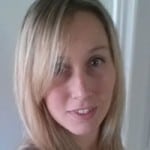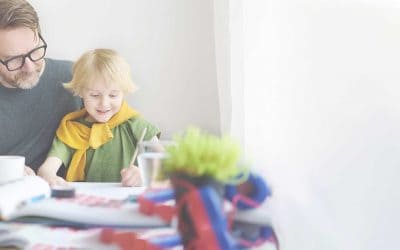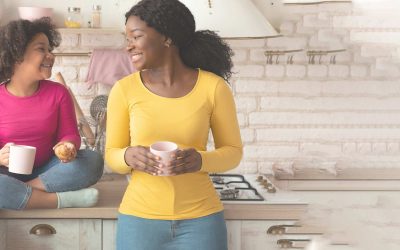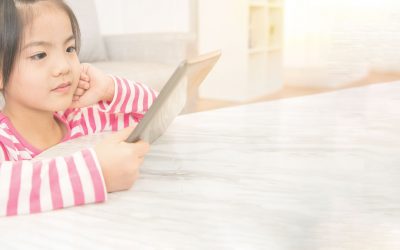I’m frequently asked, “How Does Learning Happen?”
Since August 2015, the Ontario Ministry of Education adopted the new Childcare and Early Years Act, replacing the Day Nurseries Act. The Childcare and Early Years Act (CCEYA) is now following a new education component called “How Does Learning Happen? Ontario’s pedagogy for the Early Years”.
This curriculum is designed to have children learn through relationships, family, and their environment. This pedagogy allows early childhood educators to focus on interrelationships in the setting of early learning.
Educators are beginning to Understand
Educators in child care and FDK are beginning to understand this teaching method and how best to incorporate it into their daily programs. This has been a struggle for most senior educators as we have been set in our ways for numerous years of teaching children. We have taught many children successfully, and so why change it?
How does learning happen? Ontario’s Pedagogy for the Early Years programs focus on educators observing children continuously and documenting them.
This will allow the educators to implement activities and learning components for children that follow their interests. Thus far, we have always planned for children what and how they will learn. This curriculum views children as competent, capable and curious learners. This view enables us to build on their strengths and abilities rather than plan what we feel is best for them to learn, regardless of their strengths and abilities.
The How Does Learning Happen? Ontario’s Pedagogy for the Early Years Curriculum
This new pedagogy is challenging for educators and families; based on my ten years of experience and research in the field of child care, I have encountered numerous families telling me that they are unsure of this new way of learning in early years settings. They feel that the program places too much of a focus on play and not enough on the importance of learning. Adults still want to dictate what and how their children are learning; this is based on their upbringing and keeping their child’s best interests at heart for a great future. Do not blame them for feeling this way, as I am a parent and can understand why they feel this way. I believe that we have to meet them halfway thus far, give them some of what they want, and then educate them on implementing this curriculum, followed by providing them with the documentation that their children are learning and having a blast.
The Four Foundations
How does learning happen follows four foundations, belonging, well-being, expression, and engagement. These foundations are geared to ensure that children are reaching optimal learning and development. Additionally, we are continuing to follow the six principles of the ELECT document.
The program expects to assist early childhood educators in becoming researchers and co-learners to learn about children, how they learn best, and learn alongside the children, which reinforces positive relationships in early childhood settings.
Based on the recent training I have had on HDLH, I can tell you that this is an excellent way of teaching children; by seeing children as competent, capable learners, we enable them to learn and develop at their own pace. It also allows other children to be interested in what their peers are interested in; this is teaching additional milestones for children.
How Does Learning Happen is New, Let’s Work With It
This is a new learning process for educators, children, and families, and it is imperative for everyone involved to take part and ask questions in this quest for education. Today’s children are our future, and we must foster their development at their pace and believe in them. Without feeling they are competent learners, we are failing them.
For further information about HDLH, go to www.edu.gov.on.ca
Happy Learning!
FAQ
What is How Does Learning Happen?
How Does Learning Happen? Ontario’s Pedagogy for the Early Years is a new curriculum designed to change the way educators work with developing children. It emphasizes early relationships with teachers, friends, and family. It’s more about fostering healthy development and high-quality experiences through active learning than it is about traditional intelligence and teaching.
With these new programs, educators hope to help children build positive, responsive relationships. It’s a more holistic approach to developing a child’s creative and cognitive development, emphasizing social and emotional growth. Creating environments where children are free to explore and play will support children’s learning in the early years.
One way to understand this new program is to consider it less about teaching and more about fostering a child’s ability to learn. The emphasis is on the early years’ sector so that the children grow up prepared for education.
How Does Learning Happen – The Four Foundations
A key element in the pedagogy for the early years is focusing on four foundations that are thought to be essential to the learning and growth of children.
Belonging – If children don’t feel like they belong, that isolation can stunt their growth. Through the use of early childhood programs, children are encouraged to develop authentic relationships.
Well-Being – A healthy well-being is all about a healthy sense of self. It’s one thing for a child to be healthy, but a well-adjusted child has an understanding of their self.
Engagement – This goes back to the child’s ability to learn. Children learn best when they’re actively engaging with the subject at hand. We want children to be curious, to play, and to explore the world around them in a meaningful way. This will support their problem-solving skills and allow them to foster new ideas.
Expression – Children need to be confident enough to express themselves honestly. They need to be able to communicate their needs and wants when necessary.
How Does Learning Happen in Early Childhood Education
This pedagogical document isn’t replacing traditional early childhood education but instead is meant to supplement and support it. It encourages educators to teach their subjects and create environments where that teaching is as effective as possible.
An essential part of this program is incorporating parents by acknowledging that they know their child better than anyone and can provide valuable insight that can aid in the child’s development. With How Does Learning Happen, educators, parents, and children work together to create the best possible learning environment for the child.
What is the Purpose of CCEYA?
The Child Care and Early Years Act, or CCEYA, is legislation by the Ontario Ministry of Education that went into effect in August 2015. It was designed to help parents decide what child care programs work best for their child.
The primary purpose of the Act is to determine what is and isn’t child care. For example, babysitting, day camps for children four and over, and programs that require a parent on site are not considered child care and therefore don’t require specific licenses to operate.
If a program’s primary purpose is to provide childcare, it must operate as a specified business, such as a licensed childcare center or authorized recreational and skill-building program.

Amy, having earned a Bachelors Degree in Child Development, has been in the field of Early Childhood Education for the past 10 years. First working in an infant classroom, and then moving to JK, preschool and toddlers. Currently Amy works as a Supervisor of a childcare facility in York Region.










